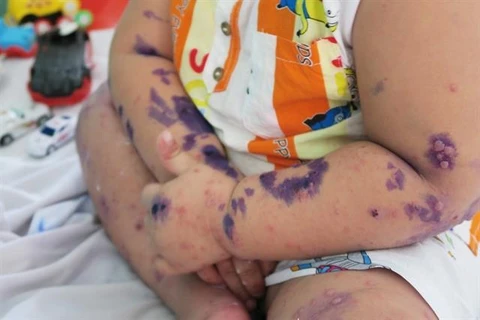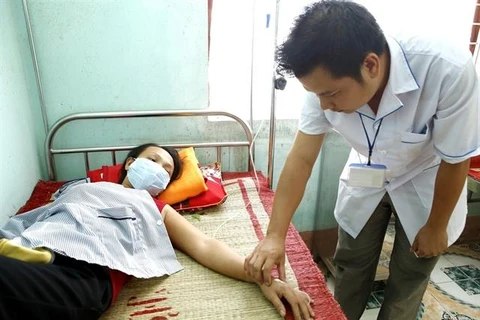Hanoi (VNA) - The ninth global symposium on Whitmore disease opened in Hanoi on October 16, attracting over 100 scientists from 26 countries.
The three-day event is the largest of this kind, held every three years, focusing on the most outstanding and typical research results about Whitmore, and sharing experiences on early diagnosis and treatment techniques.
Clinical and technical knowledge, technologies for disease detection and diagnosis, as well as antibiotics for disease treatment are being updated at the event.
Dr. Trinh Thanh Trung, Director of the Institute of Microbiology and Biotechnology of Vietnam National University, Hanoi, said the disease has been quickly spread in the community and on the media, with false information, causing anxiety among the community.
Whitmore (Melioidosis) is an infectious disease caused by a Gram-negative bacterium called Burkholderia pseudomallei. Most people infected with this experience no symptoms. B. pseudomallei bacteria are found in contaminated soil and water and spread to humans and animals through direct contact with the contaminated source. However, there is no conclusive scientific evidence for human-to-human or animal-to-human transmission in air.
Dr. Do Duy Cuong, Director of the Centre for Tropical Diseases of Bach Mai Hospital, said that this is a forgotten disease.
The disease recently were recorded in not only in Vietnam, but also in many countries in the region such as Cambodia, Thailand, Laos, Australia, India and many African countries, mainly low- and middle-income countries, he added.
At the workshop, scientists also proposed rapid tests to diagnose the disease as the current diagnosis takes from five to seven days or even more./.
VNA























